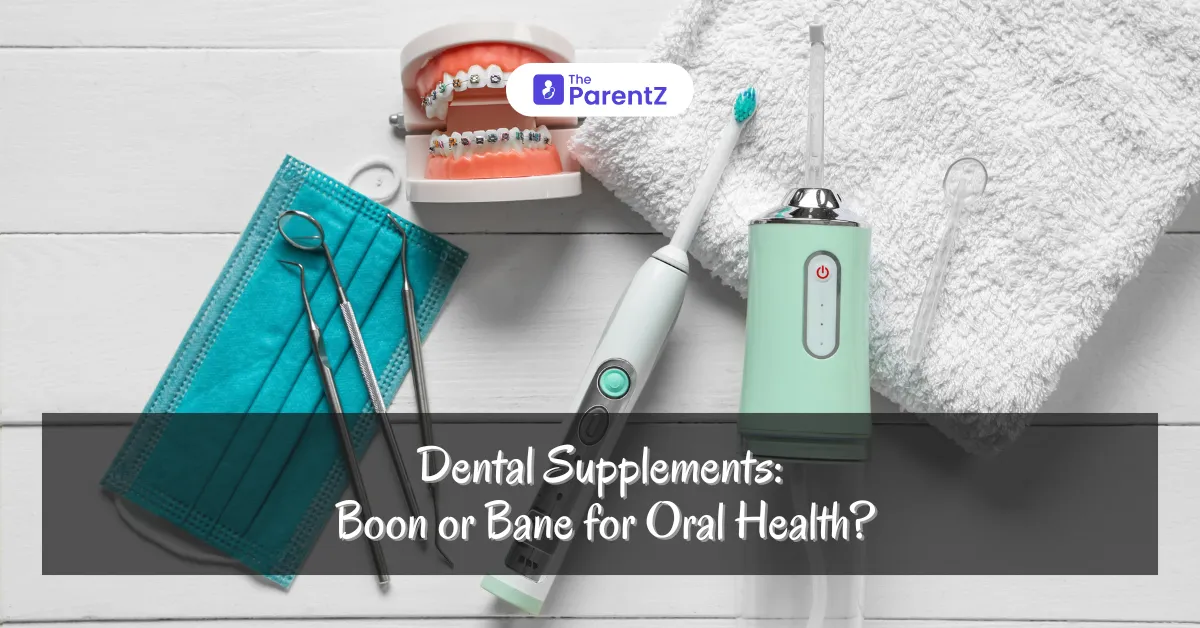Good oral hygiene practices, such as regular brushing and flossing, are essential for maintaining healthy teeth and gums. But for many, these practices may not be enough, and they turn to dental supplements to improve their oral health. From calcium to probiotics, dental supplements are marketed as solutions to strengthen teeth and prevent dental problems. But are they truly beneficial, or do they come with hidden risks?
Types of Dental Supplements
There is a wide variety of dental supplements available, each targeting specific oral health concerns. Some of the most commonly used supplements for oral care include:
1. Calcium Supplements
Calcium is crucial for the development and maintenance of strong teeth and bones. Calcium supplements are often recommended for individuals who may not be getting enough calcium in their diet, especially those with a calcium deficiency that can lead to weakened enamel and increased susceptibility to tooth decay.
2. Vitamin D
Vitamin D is essential for the proper absorption of calcium. Without adequate vitamin D levels, the body struggles to absorb calcium, which can lead to weak enamel and gum problems. Vitamin D supplements are particularly beneficial for individuals who live in areas with limited sunlight, as sunlight is the primary source of this vitamin.
3. Probiotics
Probiotics are beneficial bacteria that help balance the oral microbiome, reducing harmful bacteria that can cause cavities, gum disease, and bad breath. Probiotic supplements are gaining popularity in the dental world, with research showing their potential to improve overall oral health by promoting a healthier bacterial environment in the mouth.
4. Omega-3 Fatty Acids
Omega-3 fatty acids, commonly found in fish oil, are known for their anti-inflammatory properties. They may help reduce gum inflammation, making them beneficial for people with gum disease or other inflammatory conditions affecting the gums.
5. Coenzyme Q10 (CoQ10)
CoQ10 is an antioxidant that supports the health of gum tissue by improving cell regeneration and reducing inflammation. It may also aid in reducing gum bleeding and supporting healing after dental procedures.
6. Fluoride Supplements
Fluoride is known to strengthen tooth enamel and protect against cavities. In areas where the water supply is not fluoridated, fluoride supplements may be recommended for children and adults to help prevent tooth decay.
7. Herbal Supplements
Various herbal supplements, such as neem, licorice root, and aloe vera, are believed to support oral health by promoting antibacterial activity and reducing inflammation in the gums.
Dental Supplements: A Boon for Oral Health
1. Preventing Tooth Decay
Calcium, vitamin D, and fluoride supplements help prevent tooth decay by strengthening enamel. Enamel is the outer layer of your teeth, and when it becomes weak, it can lead to cavities. Calcium and fluoride help remineralize enamel, making it more resistant to acids and decay.
2. Supporting Gum Health
Probiotics, omega-3 fatty acids, and CoQ10 supplements support healthy gums by reducing inflammation and promoting the growth of healthy bacteria. Probiotics can reduce harmful bacteria that contribute to gum disease, while omega-3s can help manage conditions like gingivitis and periodontitis.
3. Addressing Nutritional Deficiencies
For individuals with dietary restrictions, such as vegans or those with food allergies, supplements like calcium, vitamin D, and omega-3s may be necessary to fill nutritional gaps. These supplements help ensure that the body has the nutrients it needs to maintain strong teeth and gums.
4. Filling Gaps in Oral Care Routines
While brushing and flossing are critical, dental supplements can complement these practices by providing additional protection against tooth decay, gum disease, and other oral health issues. When used alongside a good oral care routine, supplements can enhance overall oral health.
Dental Supplements: A Bane for Oral Health
1. Overuse and Side Effects
Taking too many dental supplements, or exceeding the recommended dosage, can lead to adverse effects. For example, excessive calcium intake may cause kidney stones or interfere with the absorption of other important nutrients like magnesium and iron. Similarly, too much fluoride can lead to dental fluorosis, a condition that causes discoloration and damage to tooth enamel.
2. Dependence on Supplements
Relying too heavily on supplements can lead to a false sense of security. Supplements should never replace regular dental hygiene practices like brushing, flossing, and visiting the dentist. Neglecting these basics while relying on supplements may result in poor oral health over time.
3. Quality and Effectiveness
Not all dental supplements are created equal. Some may contain low-quality ingredients or may not be backed by sufficient scientific evidence. It’s important to choose supplements from reputable brands and consult with a dentist before starting a new supplement regimen.
4. Potential Interactions
Some dental supplements may interact with prescription medications or other supplements, leading to harmful side effects. For example, calcium supplements may interfere with the absorption of certain medications, such as antibiotics. It’s always best to consult with a healthcare provider before taking new supplements.
Conclusion: Boon or Bane?
Dental supplements can be a boon for individuals who are looking to support their oral health, particularly for those with deficiencies or specific dental concerns. They offer the potential to enhance tooth strength, support gum health, and provide additional protection against common oral health issues like cavities and gum disease.





Be the first one to comment on this story.